- Register
- Log in to Tune-In
- Wishlist (0)
-
Shopping cart
(0)
You have no items in your shopping cart.
Beatles News

John Lennon and Paul McCartney were each other’s favorite audience. That was plainly clear as the besotted Beatles bantered, bickered and obsessed over the 23 years they were friends and rivals.
Ian Leslie’s new biography “John & Paul: A Love Story in Songs” (Celadon, 436 pp., out now) unpacks their intense and complicated relationship from their first meeting in 1957 to Lennon’s murder in 1980.
Along the way, there’s psychoanalysis (Leslie specializes in writing about human psychology, communication and creativity) and the occasional hair-curling discovery.
Nothing here is entirely new: Leslie relies on previously published interviews and conducted just one himself for the book, with “Let It Be” director Michael Lindsay-Hogg. But Leslie does an extraordinary job of providing context for familiar anecdotes, and there are many that will feel surprising.
Among the biggest revelations:
Paul McCartney planned to pursue a solo career if The Beatles never hit it big. The complex relationship between Beatles songwriters John Lennon and Paul McCartney is the focus of the new book "John & Paul: A Love Story in Songs."
When details

The Beatles biopic is officially happening, which means it's time to brush up on all there is to know about the Fab Four.
Actually, make that biopics—there are four of them: one for Paul McCartney (Paul Mescal), one for Ringo Starr (Barry Keoghan), one for George Harrison (Joseph Quinn), and one for John Lennon (Harris Dickinson). And naturally fan-casting has already started for the giant cast of characters in each of these men's lives. Specifically, their wives and girlfriends.
If you aren't up-to-date on who The Beatles were dating in the 60s due to reasons like not being born yet, let's start with a deep dive on Paul's famous relationships with the likes of Jane Asher and Linda Eastman.
Paul and Dot met at Casbah Club in 1959 and immediately hit it off. As in, they dated for two-and-a-half years and even got engaged. But since their relationship was largely pre mega-fame, not much is known about Dot and there aren't readily available pictures of her and Paul together. In fact, Beatles biographer Bob Spitz told The Globe and Mail, "She was very reluctant at first to talk. This takes her from being a very private person to a very public person. This was a story she had kept to herself for nearly details

Music icon George Harrison never understood Paul McCartney's 'fruity' Abbey Road song.
By 1969, the cracks that had formed between The Beatles during the recording of The White Album and Let It Be had turned into craters and they were on the brink of breaking up. However, they wanted to squeeze out one more hit album, Abbey Road.
Harrison had already quit the band once in January 1969, during the recording of Let It Be, due to rising tension between him and McCartney. He was also fed up with constantly being pushed to the side along with his music and eventually began hating all the tracks McCartney put forth.
Reflecting on his time in The Beatles during a 1977 interview with Crawdaddy, Harrison said: "Sometimes Paul would make us do these really fruity songs. I mean, my god, Maxwell's Silver Hammer was so fruity. After a while we did a good job on it, but when Paul got an idea or an arrangement in his head... But Paul's really writing for a 14-year-old audience now anyhow. I missed his last tour, unfortunately."
Whether or not McCartney's songs were good or not, Harrison had grown sick of working on them instead of his own. An over-arching tension began for Harrison during the recording of The W details

Pete Best, the drummer most famous for getting fired from The Beatles before the group shot to international fame, has retired. The news was announced by his brother Roag Best, who wrote on Twitter/X, “Well what an absolutely wonderful ride we’ve had. However, everything comes to pass.” (All Things Must Pass would’ve been too on the nose, we suppose.) “My brother Pete Best has announced today he is retiring from personal appearances and performing with the group. His daughter has informed me it’s due to personal circumstances.” Best (whose handle on the platform is “BeatlesPeteBest”) confirmed the news with a repost, adding, “I had a blast. Thank you.”
Best was an original member of The Beatles, and his family was closely entwined with the group. His mother, Mona Best, owned the Casbah Coffee House where the band played many of its early gigs—the band members even helped her decorate the space—and she became a pseudo-manager for them in their early days. (She shared a son, Roag, with The Beatles’ longtime road manager Neil Aspinall.) But when the band fired Pete in the early 1960s in favor of Ringo Starr, he ended up quitting the music b details
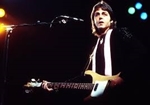
Paul McCartney’s Venus and Mars charts again in the U.S. after a massive 5,435% sales spike.
Paul McCartney doesn’t need to release anything new to bring himself back on the Billboard charts, though, of course, he’s not yet done creating. The legendary musician appears on a pair of rankings this week — not under his own name, but rather with the moniker he used during one of the most successful periods of his post-Beatles career. As fans raced to get their hands on a reissued version of a decades-old title, the beloved project experiences a surge in sales.
Wings’s Venus and Mars is back on two Billboard charts. The full-length reappears on the Vinyl Albums tally at No. 23 and also lands on the Top Album Sales ranking, where it settles at No. 45. The set isn’t brand new, but now it’s back in the conversation in the music industry, if only for a short time, as interest in the collection grew exponentially.
Venus and Mars is now back among the bestselling vinyl titles in the U.S. for just the second time ever. It once climbed as high as No. 11 on that ranking, nearly giving Wings a top 10 on a list that didn’t even exist when the album details
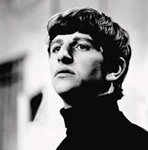
She told the story of how she met Ringo Starr
The allure of the Beatles endures around the globe, with their music continuing to enchant audiences, and forthcoming major films about the band's lives generating immense interest. Consequently, numerous stories regarding the '60s music legends persist in circulating. One particularly fascinating account provides a glimpse into what it was like to date Ringo Starr prior to his rise to fame.
A woman's brother shared a story on Reddit, asserting that she met Ringo, then known by his real name, Richard Starkey, while at Butlin's in North Wales. According to the story, the two allegedly began dating after meeting at the popular British holiday resort.
The brother penned: "My sister dated Ringo at Butlin's in North Wales before he joined the Beatles. When the Beatles first televised appearance came out on UK TV in 1962, I (10M) and my sister (18F) both watched it.
"She suddenly sat bolt upright in her chair and said 'I know him! That's Dick Starkey'. Ringo had been playing with Rory Storm and the Hurricanes at a Butlin's 'holiday camp', or Stalag as it was known to the clients, that our extended family went to, and it turns out sh
details

Before there was a documentary. Before the rooftop reunion. There was The Beatles Anthology—their story, told in their own words, in one unforgettable volume. Now, 25 years later, it’s back.
The landmark international bestseller—The Beatles’ own story, in their own words—reissued on the 25th anniversary of its first publication.From their years growing up in Liverpool through their ride to fame to their ultimate breakup, here’s the inside story. Interwoven with The Beatles’ own memories are the recollections of such associates as road manager Neil Aspinall, producer George Martin, and spokesman Derek Taylor.
The Beatles Anthology is a once-in-a-lifetime volume: warm, frank, funny, poignant, and bold—just like the music that’s been a part of so many of our lives. The Beatles Anthology is, for the first time, the story of The Beatles by The Beatles. Created with the full cooperation of Paul, George, Ringo, and Yoko Ono Lennon, it also includes the words of John, painstakingly compiled from sources worldwide. The Beatles Anthology is, in effect, The Beatles autobiography.
The Beatles Anthology features over 1300 images, most previously unpublished. Paul, details

New book Words Of Love celebrates the life of the late rock and roll musician and songwriter Buddy Holly as Sir Paul McCartney reveals how he inspired The Beatles.
A new book shows Buddy Holly as you've never seen him before - including without his trademark glasses.
Buddy Holly: Words Of Love celebrates the life of the late rock and roll musician and songwriter and the inspiration he had on many of the greatest musicians of the last six decades. Released this week in hardback, the book documents Holly's career and legacy through a collection of never-before-seen photography and personal items as well as stories from those close to him.
One shot in an open neck checked shirt shows him without glasses aged 17 and was taken from his 1954 school yearbook. He is also shown in an oversized white or cream jacket on stage in Tampa, Florida from January 1957 when he supported Hank Thompson.
The following month in February 1957, Buddy would rehearse and re-record That'll Be The Day with his new band the Crickets. It would achieve widespread success and go gold with more than a million sales in the US.
Born in 1939 the book also traces things right back to his childhood and his first radio shows in details
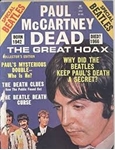
In 1969, as Abbey Road climbed the charts, a strange rumor exploded across college campuses and late-night radio waves: Paul McCartney was dead. According to the theory, Paul died in a fiery car crash in late 1966, and rather than devastate fans worldwide, the remaining Beatles — with alleged help from British intelligence — replaced him with a lookalike named Billy Shears. To ease their guilt or slyly share the truth, they began leaving cryptic clues in lyrics, album artwork, and even backmasked recordings. The result? A full-blown pop culture phenomenon that had fans poring over Beatles records like ancient scrolls.
Here are 20 of the most iconic and widely cited “Paul is dead” clues that kept a generation of fans guessing.
1. “Turn Me On, Dead Man” – Revolution 9
When fans played the experimental White Album track Revolution 9 in reverse, many claimed to hear the phrase “Turn me on, dead man” repeated clearly. This eerie line, combined with the track’s already nightmarish soundscape, seemed to point directly to a hidden message about Paul’s death, sparking one of the theory’s most persistent audio clues.
2. Abbey Road as a Funer
details

A “real hell” inspired the Abbey Road track, Here Comes the Sun, according to its writer, George Harrison.
The Beatles included Here Comes the Sun as the first song on the B-side of Abbey Road. Harrison would go on record as saying the song came from a “very heavy” place, with Eric Clapton’s influence on the song noted by Harrison in an interview with Rolling Stone UK. The Beatles member behind hit tracks like While My Guitar Gently Weeps and Something confirmed it was while in Clapton’s garden that he came up with Here Comes the Sun. The song is widely considered one of the best Beatles compositions.
Commenting on most of the songs featured on Abbey Road a short while before its release, Harrison suggested the song is “very simple”. He said: “Here Comes the Sun, the first cut on side two, is the other song I wrote for the album.
“It was written on a very nice sunny day in Eric Clapton’s garden. We’d been through real hell with business and it was all very heavy. Being in Eric’s garden felt like playing hooky from school. I found some sort of release and the song just came.
“It’s a bit like If I Needed Someo details
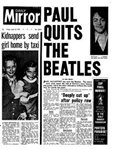
Fifty-five years ago – on April 10, 1970 – the Beatles broke up, marking the end of one of rock 'n' roll's most prominent bands.
Between 1962 and 1970, The Beatles – a four-man band from Liverpool, England – were among the most influential bands in music history, inspiring others such as The Rolling Stones, The Beach Boys, Queen and Nirvana.
Together, the Beatles wrote more than 300 songs, were nominated for 25 Grammy Awards, won eight, and starred in five movies.
There are several theories as to why The Beatles broke up: the death of long-time manager Brian Epstein, disputes with business management, creative differences, or John Lennon's relationship with his future wife, Yoko Ono. The band ultimately drifted apart.
Here’s a look at their albums and interesting facts about the groundbreaking band:
Although The Beatles were together for less than a decade, the songwriting of Paul McCartney and John Lennon pushed the boundaries of music and evolved throughout the 1960s. All four band members composed several songs.
A study published in The Journal of Beatles Studies examined the number of songs written by each of the four Beatles between 1962 and 1970 details
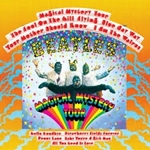
We all know Magical Mystery Tour for its acid-drenched imagery, colorful chaos, and unforgettable tracks like “I Am the Walrus” and “The Fool on the Hill.” But behind the rainbow font and surreal bus trip lies a strange, deeply experimental chapter in Beatles history. From chaotic sessions to hidden musical innovations, here are 5 surprising facts about the album that aren’t always in the spotlight.
1. It Started as Paul’s Psychedelic Answer to Ken Kesey
The concept for Magical Mystery Tour was Paul McCartney’s brainchild, inspired by author Ken Kesey and his Merry Pranksters’ LSD-fueled bus trips across the U.S. Paul wanted to create a film that mirrored that free-form, anything-goes energy — but with a distinct British vibe, like holiday charters headed to the seaside. The movie itself was completely unscripted. Just ordinary people aboard a coach on a “magical” journey, guided by the Beatles and their imaginations. While the film confused British audiences when it aired, the music became a psychedelic staple.
2. The Recording Sessions Were Total Mayhem (Even George Martin Backed Off)
By 1967, the Beatles were enterin details

In a recent interview with The Telegraph, Baird was candid when asked if she believed that Liverpudlian actors should have been cast to portray the four Liverpool native musicians, who will now be portrayed by two actors from Ireland and two from London. While she has no direct involvement in the films or Lennon’s estate, she believes that only Liverpudlian actors can truly embody the Beatles in all their local authenticity. Read her comment below:
Yes, of course. No one else can get that Liverpool intonation. Nobody.
When asked if she would give director Sam Mendes any advice that would help him capture life as a member of the iconic band as accurately as possible, Baird stated that talking to her would be the last thing the director would want to do. This is what she said:
He’s never going to ask me! I’m the last person he would want to talk to because then he can’t make it up.
Mendes has a track record of capturing nuanced and emotional performances, so he may still be able to capture the band's spirit even if the accents are not spot-on.
While the chosen cast of The Beatles – A Four-Film Cinematic Event consists of talented rising stars, their geographic details

Our childhood friends’ parents often play larger roles in our lives than we fully realize when we’re young, and a teenage Paul McCartney watching George Harrison’s dad was certainly no exception. Years before McCartney and Harrison would become a part of one of the biggest rock bands of the time, they were schoolmates and pals familiar with each other’s home lives.
When someone’s parent was acting, as the teens might say, lame, friends knew about it. When someone’s parent did something incredibly cool, friends knew about that, too. And one fateful day at the Liverpool Institute High School for Boys, George Harrison’s father became a “hero” in the eyes of their group of mates.
As the leather jacket-clad, pompadour-haired Quarrymen’s outward appearance might have suggested, Paul McCartney and George Harrison’s style and attitude often made them the target of canings by their teachers at the Liverpool Institute High School. During a television interview, McCartney described his school’s practice of caning students across their open palms. “We never really did anything wrong. But we might have, like, tight trousers and Ted hairdos. That p details

Music icon George Harrison said he felt "limited" and "pigeon-holed" working on one of The Beatles' most famous albums, which he dubbed as "weird."
Around 1967, after the group had sworn off touring and released Sgt. Pepper's Lonely Hearts Club Band, cracks began forming in the Fab Four and they started growing apart.
Each band member yearned to work on their own separate projects and essentially wanted to break out of the Beatles bubble that had held them back for about seven years.
During a 1977 interview with Crawdaddy, Harrison said the first time he thought about leaving The Beatles, a period he called "depressing," was when the group was recording The White Album.
He explained that "it was a problem making a double album because it takes such a long time," and "it was a period that had started a bit negative."
"It was a bit difficult and we got through it and it was fine," Harrison said, but working on The Beatles' following album proved even worse for him.
Source: themirror.com/Hannah Furnell
details